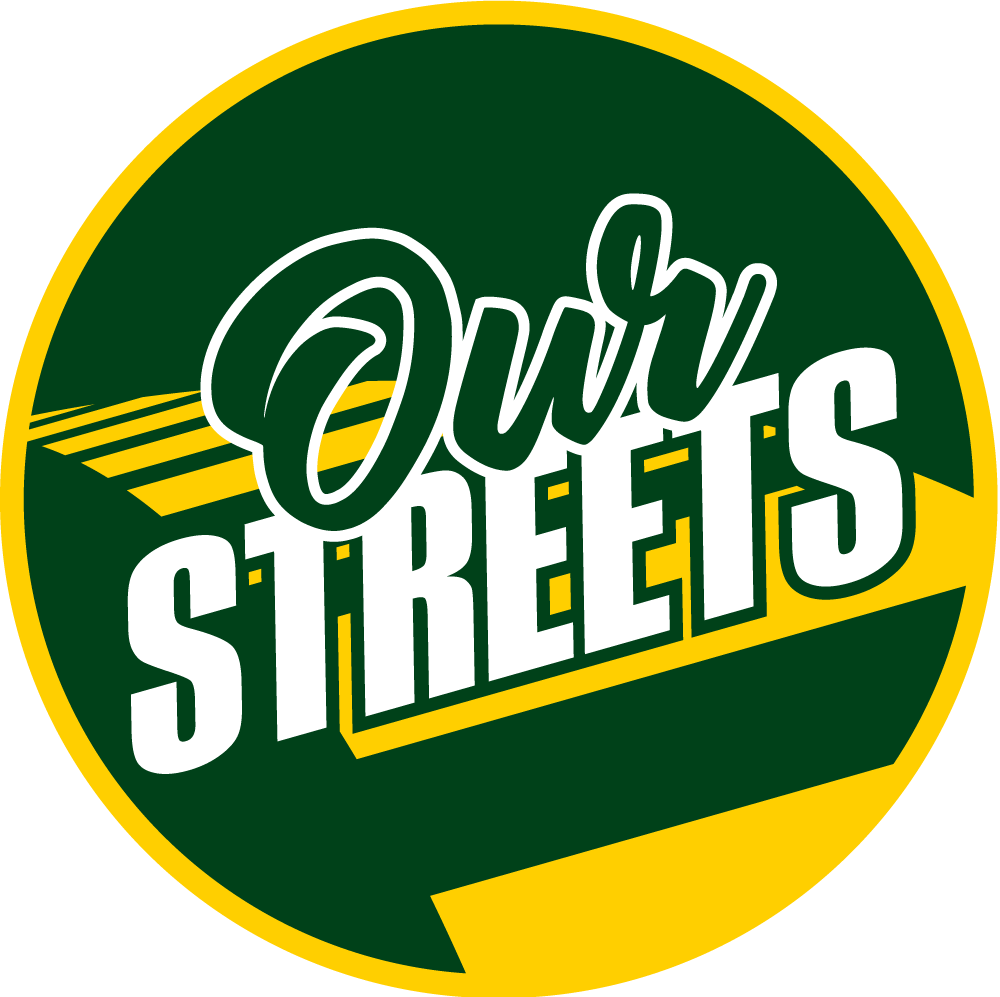Whose Streets? Our Streets! Releases Inspiring Report on BIPOC Community Safety
We know that everyone deserves freedom of mobility and safe access to public streets. And safety should be defined by the people who feel most unsafe, not the people shielded from harm. Solutions for community safety should also be defined by the people who feel most unsafe.
Our Black, Indigenous, and other People of Color (BIPOC) communities not only have the least access to safe, healthy, and affordable transportation, we are disproportionately harmed by unsafe streets and punished disproportionately by an unjust system of traffic enforcement. Traffic enforcement, which represents nearly one-fifth of all public encounters with the Seattle Police Department, is used by police to threaten, harass, and murder Black people and other POC for simply existing in public spaces.
Despite this, BIPOC have historically been excluded from conversations about traffic safety and enforcement, and experience betrayal or false promises from public systems. So what does community safety mean to Seattle’s many diverse BIPOC communities? And what would help us to feel more safe on our streets and in our shared public spaces?
Who is WSOS?
We are an all-BIPOC workgroup launched in 2020 as a program of Seattle Neighborhood Greenways to help find answers to these questions and advocate for BIPOC community safety on our streets. Our crew include 14 Black, Indigenous, POC, and queer/Trans community members with expertise in transportation, planning, research, police accountability, anti-racism work, community health and development, environmental justice, culturally-specific social services, and more. We intentionally center BIPOC voices, experiences, and leadership in everything that we do. Internally, this means paying our team for time and expertise and working to build community advocacy and organizing skills and confidence through peer-to-peer skill sharing, mentorship, and support. Externally, this means working in solidarity with our communities, prioritizing our time and energy for BIPOC community spaces, and taking our advocacy priorities directly from what we are hearing.
Our Work
In 2022, we’ve developed working relationships with groups and organizations led by and serving BIPOC communities, worked collaboratively with you to host community events to bring BIPOC community members together, and participated in public events that provide a platform to speak to and engage with Seattle’s BIPOC community on a larger scale. We hosted individual conversations and small-group listening sessions and conducted surveys within the BIPOC community asking people to share their perceptions of and solutions for community safety. We also highlighted community priorities and topics of community concern, then delved more deeply into those subjects: parking enforcement, police stops, and automated enforcement.
Whose Streets? Our Streets! just released a powerful report summarizing what we heard. Click here (or see below) to read the report in full.
What We Heard
BIPOC communities, and the Black community in particular, experience an overwhelming amount of fear and anxiety just existing out on the street and in public places, and getting from Point A to Point B. This anxiety is a major factor in just about every transportation decision made. The primary concern participants shared is harassment and fear of harassment – by police especially, but also by other people in positions of power such as bus drivers or fare enforcement officers, and by other members of the public.
Additionally, people feel safe when they have a roof over their heads, a stable job with a thriving wage, and access to healthcare and social services. People feel safe when they know and feel connected to their neighbors, and experience a sense of community belonging that involves both support and accountability. Community networks formed on shared values, language, racial identity or shared experiences create a sense of community connectedness that feels safe. And conversely, being in spaces and neighborhoods with mostly white people creates anxiety and many BIPOC feel they have to be alert at all times.
See our full report for additional themes related to transit, street infrastructure, walkable communities, environmental health, policing, and more.
“The most powerful listening session, for me, was the one we did with BIPOC youth,” said WSOS member KL Shannon. “It was planned, led, and facilitated by youth from our team working together with the NAACP Youth Council. It was amazing to see our youth speaking out about their experiences and the injustices they see and sharing their brilliance. It was so inspiring.”
Community Solutions and Recommendations
We were inspired by the thoughtful and transformational solutions and recommendations we heard from community members for policing, transportation, and community safety.
Conversations ranged widely and highlighted how much all of our struggles are interconnected. Solutions like affordable housing, access to jobs, and social services will impact mobility. Establishing community patrols and response teams and providing support for youth will increase access to and safety in public spaces.
Key themes also included expanded transit service, free transit for all, basic street infrastructure for people walking and biking, slower vehicle speeds, and improved maintenance.
What’s Next?
Join us in-person on January 16, 2023 at the Martin Luther King Jr. Day workshops, rally, and march, where we’ll be doing a community report-back on our work!
We’re currently distilling our findings into a set of advocacy recommendations, as well as continuing to work on priorities identified in 2022: parking enforcement, automated enforcement, traffic stops, and housing for all.

